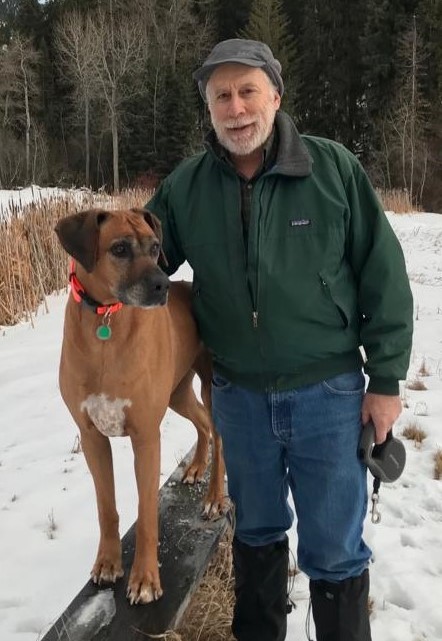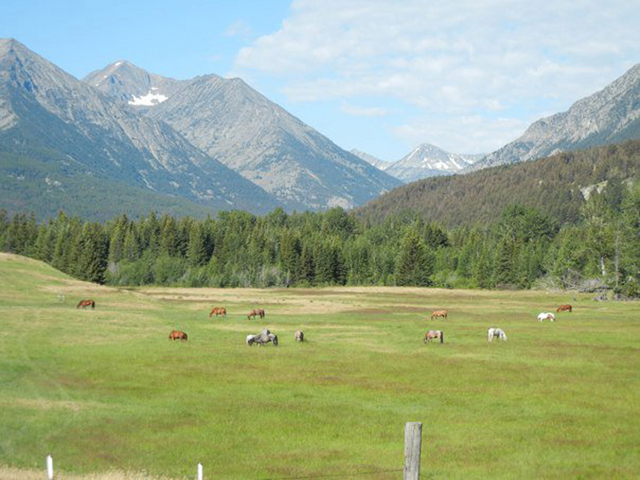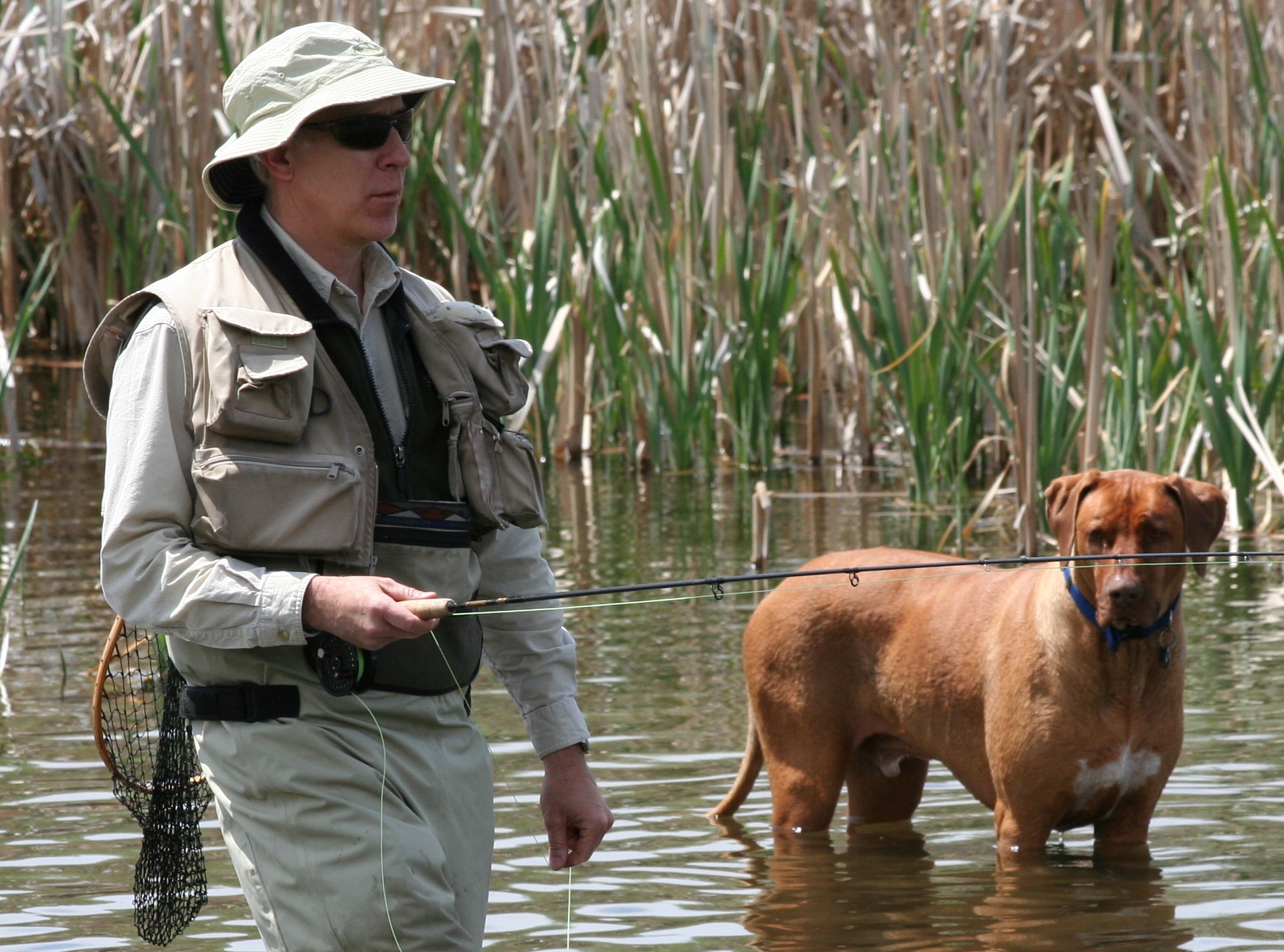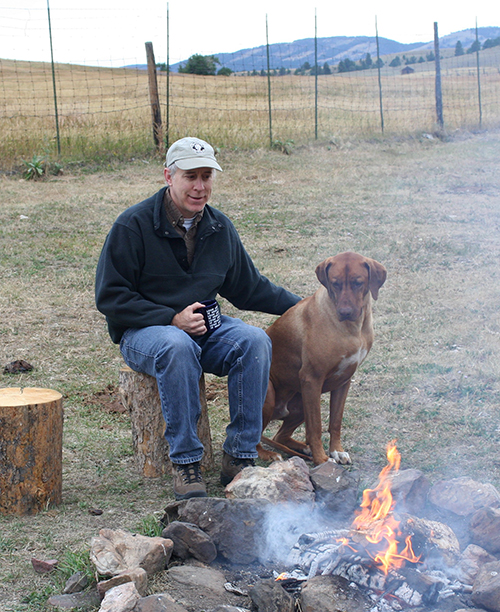 Have you ever wondered who the Commissioners are and what they do? We caught up with Commissioner Andrew (Andy) Dana and asked him five questions about joining the Commission.
Have you ever wondered who the Commissioners are and what they do? We caught up with Commissioner Andrew (Andy) Dana and asked him five questions about joining the Commission.
Meet Commissioner Andy Dana. Although Andy was born and raised through grade school in New Jersey, he is now a transplanted westerner for forty years – or maybe 50 years if you count the summers he spent in Montana after his parents bought their family ranch near Livingston in 1969. Before moving to Montana permanently, he attended Middlebury College in the Green Mountains of Vermont; graduate school at the University of Washington and studied Geography and natural resources policy (and chased steelhead); and law school at Stanford, where he hiked the nearby Bay Area hills and the redwood forests.
Spending time on the land and on rivers shaped his career. Andy's study of Geography gave him both a vocabulary and an intellectual framework to understand his sensitivity to "place" and landscape that seems always to have shaped his view of the world. His gravitation to law, and his land conservation legal practice for the last 30 years, has been driven, as much as anything, by a strong desire to protect the West's magnificent landscapes and to preserve the ranching livelihood and heritage there that benefits everyone. Andy says, "unlike some, I did not become a lawyer because I love the law. I practice land conservation law because I love the land."
Q:What drives your passion for land conservation?
A: "Conservation ultimately boils down to rewarding the private landowner who conserves the public interest." I first read Aldo Leopold's famous statement 40 years ago and it still resonates. Why do my thoughts always return to Leopold? I think it's because I grew up knowing Montana farmers and ranchers who practice land conservation daily, year-in and year-out, preserving land and soils, open-space, scenic views, and fish and wildlife habitat, all as a by-product of their way of life. Their private land management practices conserved the land and riverscapes that moved me when I was young and that still move me today. Their sense of community - their shared dependence on one another to get through winter blizzards, crippling droughts, raging range fires, and so many other challenges - seem emblematic to me of a greater community ethic. And, it's a short leap from appreciating the social bonds in these tight, interdependent, rural agricultural communities, that ultimately depend on healthy land and water resources, to Leopold's land ethic that, in his words, "simply enlarges the boundaries of community to include water, soils, plants, and animals, or collectively the land."
My fundamental hope has always been, and remains, that private land conservation will help foster an ethic in our society that motivates individuals to protect and preserve their properties voluntarily, and thereby to continue to provide benefits to society at large.
Q: What drew you to serve as a volunteer commissioner?
A: Early in my legal career, I remember a Rally Session when Bill Hutton and Joan Vilms warned about the emergence of "rogue land trusts" that abused our non-profit laws and thereby posed a serious threat to the activities of legitimate land trusts. Independently, I had already started to worry about such threats, especially when rogue land trusts pair with unscrupulous individuals who equally disrespect and violate conservation easement terms and laws. Those twin concerns sparked my abiding interest in the development of a suite of uniform "best practices" for land conservation and in the feasibility of conservation easement defense insurance.
Accordingly, in the northern Rockies we investigated captive insurance for conservation easement defense that eventually lead to the formation of Terrafirma after the Alliance (thankfully) stepped in to nationalize our regional program. Similarly, I followed and commented on the Alliance's early studies of accreditation, and three of my land trust clients were in the first class of accredited land trusts.
Serving as a Commissioner allows me to give back to the land trust community and to share the knowledge I've accumulated over the past 30 years both as a legal professional and as an owner of a conservation easement property. So, joining the Accreditation Commission just seemed like a natural progression and fit, given my background and experience.
Q: You joined the Commission in 2020. What has been the most unexpected thing about serving on the Commission so far?
A: After 10 months, I am still learning about all that the Commission does for the land trust community. That said, two aspects about my job as a Commissioner stand out. First, I am in awe of – and grateful for the Commission's staff and the depth of their knowledge and experience. I knew from my representation of land trusts how all-consuming accreditation applications can be for those seeking accreditation. What I failed to appreciate before joining the Commission is the care that the Commission staff gives to all of these applications, the guidance and advice given to land trusts, and the hours spent working through issues and concerns together with the Commissioners in the process of making accreditation decisions. Second, the time, dedication, and passion that the Commissioners themselves bring to the job has been a revelation – as well as something of a burden because, unfortunately, it is now clear to me that I cannot be slacker among such devoted co-Commissioners and staff members!
Q: What is your favorite childhood memory of being outdoors?
A: Okay, this is really a tough question because all I really remember about my childhood are times spent outdoors! Although this is not technically from my "childhood," I offer here an iconic teenage memory. At 16, my first job for (meager) pay was as a horse wrangler at a small guest ranch in the Crazy Mountains on Sweet Grass Creek. I'm not naturally an early riser, but my first daily duty was to gather the ranch horses before dawn from their night-time mountain pasture. This is how I remember it:
An alarm. It's still dark and cold in my cabin. I roll out of bed and throw legs and arms into frigid clothing as quickly as possible. I grab my hat and shiver out the door. My breath steams in the pre-dawn light as I walk through the Old Barn pasture to catch and halter "Rip" – as in R.I.P. -- my wrangle horse this morning. My fingers are stiff in the chill and my toes wet in my boots soaked by heavy dew. As I saddle Rip at the barn, I take in her rich horse smell mixed with the smells of worn saddle leather and dried sweat on my woolen saddle blanket.
Riding out alone to find the horse herd, my free hand rests on Rip's warm neck under her mane. We cross the creek and trot uphill through the mountain grasses and wildflowers, swishing to Rip's gait under me. We pause occasionally to listen for the bell on Papoose, the lead horse. We eventually find him and the others bunched up in a glade at the edge of the timber, about three-quarters of a mile from home. It's getting lighter. A dozen horses watch us approach, ears pricked. One or two nicker a low greeting.
Up canyon behind the horses, the mountaintops glow pink and orange in the sunrise, and bright white on the snowfields.
We turn the horses toward home. They start slowly, then suddenly they become a blur of fluid motion and speed. Thirty horses running flat out ahead of us, through the lush green fields back to the corrals for their morning ration of grain. Rip stretches under me at an easy lope as we follow, and we finally leave the shadow of the southeast ridge, coming into sunlight that is already warming the canyon floor. It's time for breakfast.
Can you believe that I got paid for doing this every morning that summer? Really. And now I'm a lawyer?
Q: What is your favorite way to spend time in nature?

Fly fishing for trout. This activity has been a mandatory pleasure in my family, beginning for me at age 5 with my parents' weekend trips to the trout streams of Pennsylvania's Poconos. My wife and daughter and our Rhodesian ridgebacks all partake now – remember, it's mandatory – and it's been especially gratifying to see my daughter out fish me over the past few years. (Of course, I've not really been trying my hardest . . . . Yeah, right, Dad.) I know of nothing so restful and rewarding because, invariably, trout live in the loveliest of lovely places.
(Except I have to admit that sometimes it's not completely relaxing when fishing in Yellowstone Park around bull bison and grizzlies.)
Thanks to Andy for sharing his story with us!





